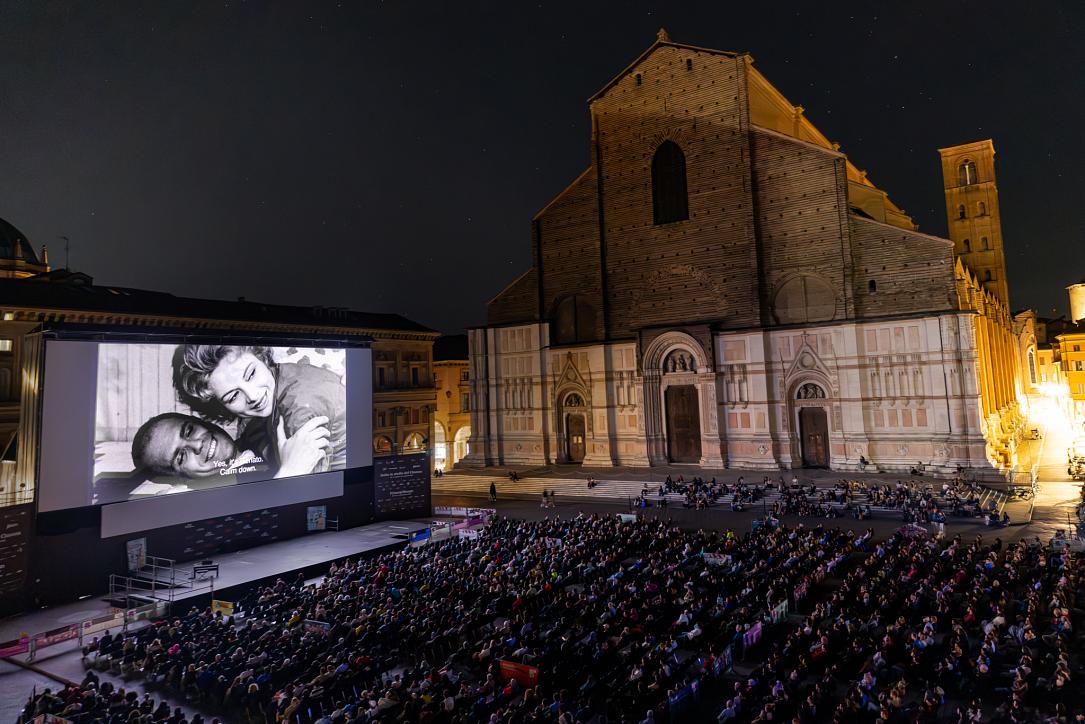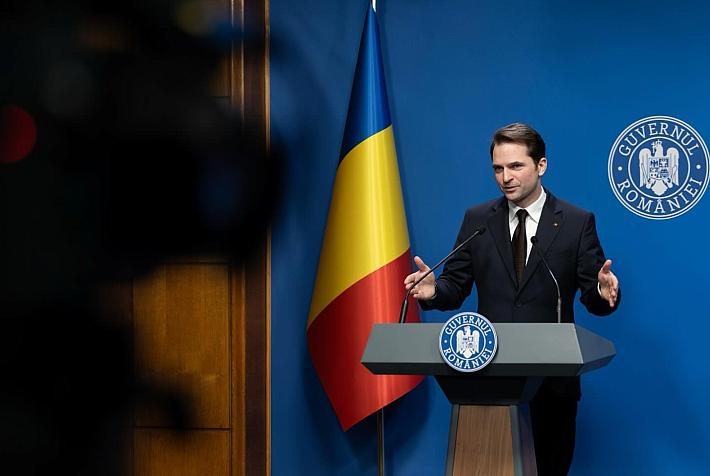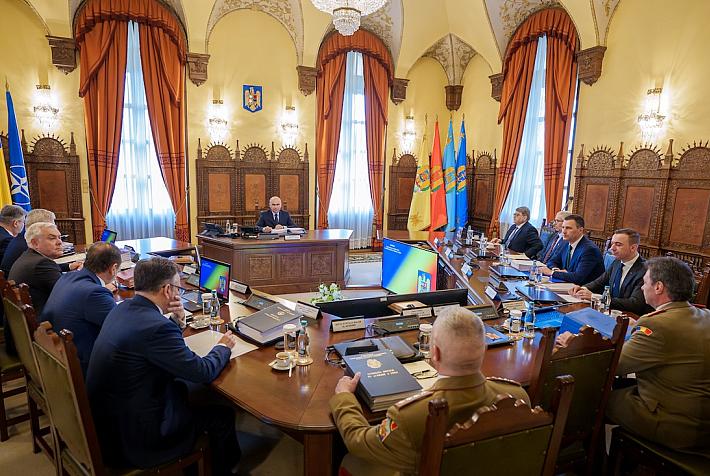Romanian film review – The fresh and the (re)found: TIFF & Il Cinema Ritrovato

In a tradition unchanged, my month of June has been the same for years. Like everyone here, I count the days to Transilvania International Film Festival (TIFF), and then travel to the Northern Italian town of Bologna for Il Cinema Ritrovato. I am not alone on my pilgrimage and no surprise at all, since the former is Romania’s biggest film event and the latter might just be the world’s most beautiful homage to cinema.
TIFF took place in Cluj-Napoca between 14 and 24 June and will go on tour. Its next stations are Constanța (20 August – 1 September) and Brașov (4 -6 October). TIFF Unlimited, the project’s streaming platform, also goes on tour with selected fest titles, you can check out the details here.
The festival's busiest section are the Romanian Days (Zilele Filmului Românesc), with features and shorts competing in their respective category, and a few out of competition. The feature winner this time was truly something original. Horia Cucută and George ve Ganæaard’s Dismissed/ Clasat is a low-budget, fully independently financed thriller disguised as a fake documentary investigating the suspicious death of an employee of an AI company. Made up mostly of talking heads, this is densely plotted, clever stuff, using its ‘limitations’ to the best effect. Such a fun genre surprise, and what a good choice of a winner.
Not competing, and much expected after its win of the Queer Palm in Cannes was Emanuel Pârvu’s Three Kilometres to the End of the World/ Trei kilometri până la capătul lumii. Incredibly gripping and visually elegant, the drama follows a few (decisive) days in the life of a gay teenager in a remote fishing village after his parents find out.
Also out of competition, and less assured but so revelatory in terms of its subject, was Alexandru Badea’s Magnificent Sky. I had not heard of Iancu Dumitrescu and Ana-Maria Avram, who composed avantgarde, experimental music as early as the 1960s and was beyond impressed, especially by Avram’s complex, eloquent elaborations on musical theory.
I was also impressed by Alexandra Gulea’s Maia - Portrait with Hands/ Maia - Portret cu mâini, a poetic docu-fiction hybrid interlacing stories about the director’s grandmother and her Aromanian community, painfully seldom featured on (fiction) film. The shorts were, as always, a fun box full of surprises. The most delightfully over-the-top was Hana Stroe’s Holding It Up with the Sztroes/ Ținând-o sus cu Sztroe, a wild mix of fake documentary and animation alternating between the hilarious and the tragic.
The International Competition was really strong this year, which is not a given. And in an absolutely deserved, impressive coup, two Indian dramas featuring wilful female characters were awarded the biggest prizes: Shuchi Talati‘s wonderfully perceptive, surprising coming of-age debut Girls Will Be Girls and PS Vinothraj’s The Adamant Girl/ Kottukkaali, a striking, shocking and impressive satire of patriarchal, superstitious traditions disguised as a road movie. What a singular voice PS Vinothraj has. His previous picture, Pebbles/ Koozhangal, also snatched a prize here three years ago and with The Adamant Girl he has sharpened his approach even more. The amount of admiration I had for both films was matched for what is the safest bet in Cluj, the programmes paying homage to established directors. I loved French filmmaker Claude Sautet's exquisite and twisted (in the literal sense) noir/ police drama Max and the Junkmen/ Max et les ferrailleurs (1971), while watching the gorgeously restored print of Kenji Mizoguchi’s sweeping, heart-wrenching Sansho the Bailiff/ Sanshô dayû (1954) in the Focus Japan section was a highlight for many of us attending.
“Restored" is the perfect segway to the next station mentioned. Il Cinema Ritrovato means “cinema re-discovered” and it is the most important festival dedicated to film restoration, showing both obscure and known material restored by specialised centres and labs, but also newer fare and beloved classics. This year it unfolded between 22 and 30 June. A cinema-lover’s delight in its simplicity: no competition, no red carpet, not events, no guest lists. Just as reliably wonderful as the homage sections at TIFF mentioned above. All killers, no fillers, as they say.
The most impressive series was also dedicated to Japanese cinema, paying homage to Kōzaburō Yoshimura, whose melodrama Undercurrent/ Your no kawa (1956) must be one of the most beautiful films ever made. He is so good at mixing emotion with a wonderful sense of place, colour, and movement. I am forever grateful to have watched Sisters of Nishijin/ Nishijin no shimai (1951) and On this Earth/ Chijo (1957) on a big screen. If you get the chance to catch any, whether at a cinema, late-night TV or a streaming platform — here is looking at you, MUBI, you better be on this — then just drop everything.
German-speaking cinema has had some of the most popular screenings here. In the past years it was musicals and comedies, now pics from the 1940s to the early 1960s focusing on the notion of the ‘homeland’ (“Heimat”). The fantastically (and evocatively) titled “Dark Heimat” brought one of my favourites, Josef von Báky’s playful Die seltsame Geschichte des Brandner Kaspar (1949).
Traditionally, Il Cinema Ritrovato also focuses on Italian cinema (Pietro Germi’s moving The Railroad Man/ Il ferroviere and Antonio Pietrangeli’s sharp comedy The Visit/ La Visita) and so-called “world cinema”, films from countries other than the established, conventionally featured (Western) ones, running here under the name Cinemalibero (Amir Naderi’s stunning Waiting/ Entezar - Iran, 1974).
And where if not in Bologna can one marvel at the most various of silent films from the beginning of the 1900s. It was wonderful to experience how physical comedy works the same a century later as the whole theatre roared with laughter at the lady catching a flea in (La Puce). Silent films, as Il Cinema Ritrovato has proven year by year, are a treasure chest of inspiration and awe. One of the most beloved locations, the historical main quare, Piazza Maggiore, hosted Victor Sjöström’s The Wind (1928), a sublime film that hasn’t aged a day.
By Ioana Moldovan, columnist, ioana.moldovan@romania-insider.com
Photo info & credit: screening of The Visit, © Margherita Caprilli/ curtesy of Il Cinema Ritrovato











